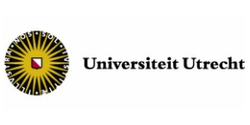PhD position in characterisation of polymer-based gene delivery vehicles
Updated: 01 May 2024
Our DNA is an intricate database holding all information essential to life. Although often correct, small errors can lead to (severe) genetic disorders. A promising strategy to cure these diseases is to rewrite the genetic database. In principle, this can be achieved by delivering therapeutic nucleic acids. To facilitate delivery, the nucleic acid cargo is packaged in nanoparticles. Despite the hypothesised potential, these particles typically only deliver a fraction of their cargo. Evidently, this is unacceptable for clinical translation and major improvements are needed.
Your job
Fueled by a recently awarded ERC Starting Grant (POLYPATH) our team works on developing novel fabrication routes for polyplexes based on polymerisation-induced electrostatic self-assembly (PIESA). PIESA offers a synthetic tool to manipulate the polyplex assembly process.
Your role will be to fundamentally understand how PIESA impacts the polyplex properties and how we can design assembly pathways that will lead to polyplexes with optimised pharmaceutical potential. To get to these insights, you will use advanced analytical techniques, including (time-resolved) small angle X-ray scattering (SAXS) and NMR relaxometry. Combing this set of challenging techniques, will paint a detailed picture on the encapsulation of nucleic acids by forming polymers from molecular to colloidal length scales.
This project will be a collaborative effort with the 'Self Organizing Soft Matter' group of Professor Ilja Voets at the Eindhoven University of Technology (TU/e) and Dr. Camilla Terenzi and the Biophysics Department of Wageningen University & Research (WUR).
The interdisciplinary nature, large collaborative network and societal relevant research direction make this PhD position the ideal opportunity for you to develop into an independent and versatile researcher. Additionally, you will have the chance to contribute to educating the next generation of (pharmaceutical) scientists through active involvement in the educational programmes of Utrecht University.
Requirements:
This PhD position is the right fit for you if you are enthousiastic and collaborative, and meet several or all of the following criteria:
- You have a MSc degree in physical chemistry, polymer chemistry, supramolecular chemistry, pharmaceutics or related disciplines.
- You have a strong background in X-ray scattering and affinity with other advanced analytical techniques e.g., NMR and/or fluorescence correlation spectroscopy (FCS).
- You are able to analyse complex data sets with the use of mathematical models and software (Phyton, MatLab, SasView etc.).
- You are able to work in multidisciplinary research environment;
- You have excellent communicative skills in English, both in writing and speech.
Salary Benefits:
We offer:
- a position for four years;
- a working week of 40 hours and a gross monthly salary between € 2.770,- and € 3.539,- in the case of full-time employment (salary scale P under the Collective Labour Agreement for Dutch Universities (CAO NU));
- 8% holiday pay and 8.3% year-end bonus;
- a pension scheme, partially paid parental leave and flexible terms of employment based on the CAO NU.
In addition to the terms of employment laid down in the CAO NU, Utrecht University has a number of schemes and facilities of its own for employees. This includes schemes facilitating professional development, leave schemes and schemes for sports and cultural activities, as well as discounts on software and other IT products. We also offer access to additional employee benefits through our Terms of Employment Options Model. In this way, we encourage our employees to continue to invest in their growth. For more information, please visit Working at Utrecht University.
36 - 40 hours per week
Universiteitsweg 99

